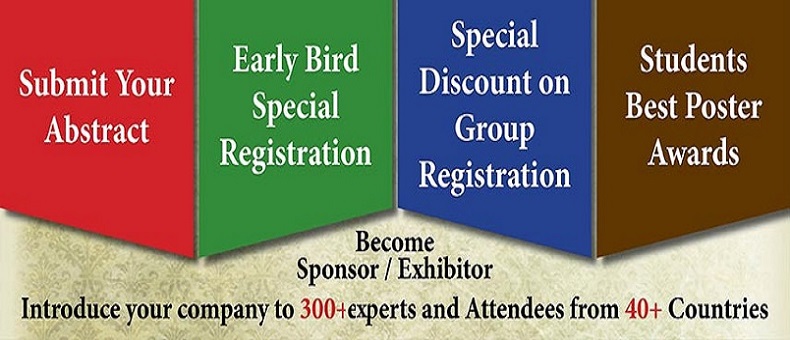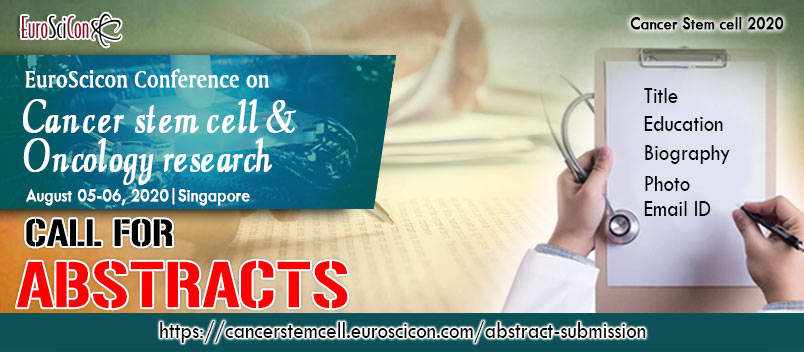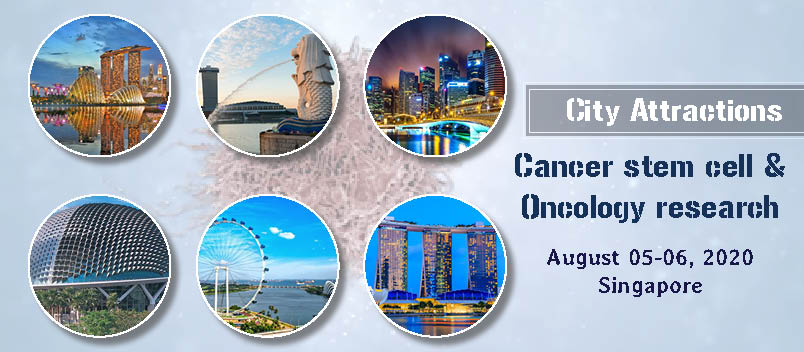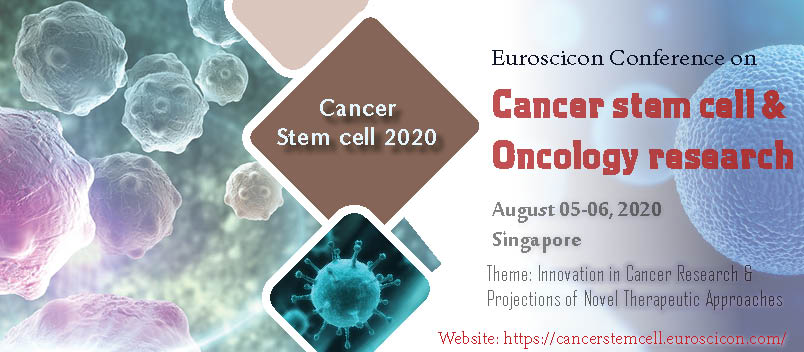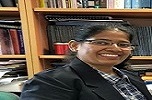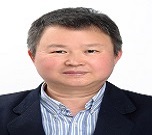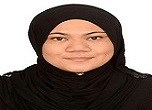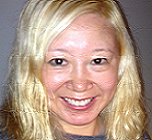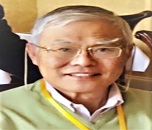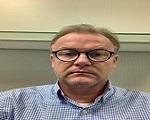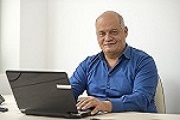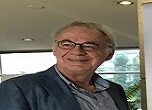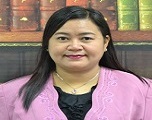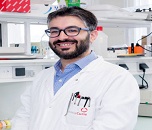Cancer Stemcell 2020
ABOUT CONFERENCE
Theme:-Cancer Stem Cell & Oncology research challenges with COVID-19 pandemic
EuroSciCon extends its warm welcome to all its participants to CANCER STEM CELL 2020 scheduled on August 05-06, 2020 with a theme “Cancer Stem Cell & Oncology research challenges with COVID-19pandemic". EuroSciCon organizes Global Events with Conferences, Symposiums and Workshops on Medical, Parma, Engineering, Science, Technology and Business.
We gladly welcome attendees all around the world for the hearing of the foremost recent innovations and inventions in the field of cancer. This Conference will provide a forum for exchange of ideas and authoritative views by leading scientists, industry specialists and also from the academicians of the best institutes from around the globe. Outstanding keynote speakers and well known leading scientists and experts from around the globe will be expected to share their knowledge and talk about various aspects related to various frontiers in the field of Cancer stem cell. Our aspiration is to gather peer researchers, young scientists, academicians & industrialists to meet, discuss and share the knowledge that’s still more to be revealed. Gain and grab the knowledge. Conferences and symposia provide unlimited opportunities to strengthen the community, and are also the collective body of knowledge. We cordially encourage you to attend and contribute to one of the major events of 2020 on the field of Cancer stem cell. The conference will reveal the present and future aspects in the field of Cancer stem cell which are the need of the hour for instant and précised treatment.
Cancer Stem Cell& Oncology:
The branch of health care determines safety & efficacy of medications, devices, and diagnostics and also treatments intended for human use is termed Clinical Research These are used for the treatment purpose, prevention, diagnosis and relieving symptoms of the diseases. Clinical research varies from clinical practice. Clinical practice uses established, whereas in case of clinical research evidence is collected for establishing the new treatment. And “biological marker” .i.e. Biomarker refers to the category of medical signs or say objective indications of the medical state which is observed from outside the patient – and is measured accurately.
Who and Why??
Cancer Stem Cell– 2020 Conference brings together the specialists from all the aspects to meet and discuss the future of Oncology & Cancer in today’s world to thrive and survive with a better health. The conference will bring together Directors specialists, Investigators, Post-Doctoral Fellows, Research and Diagnostic Laboratories, Clinical Fellows, Students, BiomedicalResearch companies, CRO’s, Healthcare Institutions, Market Research and Consulting Firms, Pharmaceutical Companies, Medical device specialist and all the interested participants willing to enhance and update the knowledge on Cancer Stem Cell. tors, Doctors, Director of Laboratories, Universities, Industries, Delegates, Cancer Research
SESSIONS AND TRACKS
Track 1: Cancer Stem Sell
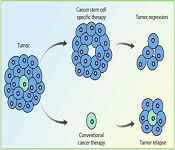
The Cancer Stem Cell (CSC) speculation hypothesizes the presence of a little populace of disease cells with characteristic properties taking into account protection from traditional radio-chemotherapy regiments and expanded metastatic potential. Clinically, the forceful idea of CSCs has been appeared to connect with expanded tumour repeat, metastatic spread, and generally poor patient result over various malignant growth subtypes. Separation of CSCs has been accomplished through use of cell surface markers, while the useful contrasts among CSCs and remaining tumour cells have been portrayed through expansion, separation, and constraining weakening measures.
- Embryonic Stem Cell
- Epigenetics
- Stem Cell Therapy
- Stem Cell Transplantation
Track 2: Cancer Diagnosis
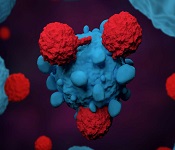
Oncology is a part of 5 medication that bargains with the anticipation, conclusion, and treatment of Cancer Disease survival has enhanced because of three primary segments including enhanced counteractive action endeavours to diminish presentation to chance elements (e.g., tobacco smoking and liquor utilization) enhanced screening of a few tumours (taking into consideration prior finding), and upgrades in treatment.
Malignant growths are regularly overseen through discourse on multi-disciplinary disease gatherings where restorative oncologists, careful oncologists, radiation oncologists, pathologists, radiologists, and organ particular oncologists meet to locate the most ideal administration for an individual patient considering the physical, social, mental, passionate, and money related status of the patient. It is imperative for oncologists to keep refreshed as for the most recent headways in oncology, as changes in administration of malignancy are very normal.
Track 3: Oncology Research Categories
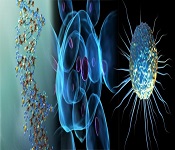
Cancer Oncology examines are being led remembering different classes or criteria like area, influenced organ, sort of Cancerdisease, kind of consideration or drug, condition or encompassing.
- Medical oncology
- Radiation Oncology
- Surgical Oncology
- Clinical Oncology
- Paediatric Oncology
Track 4: Cancer Science
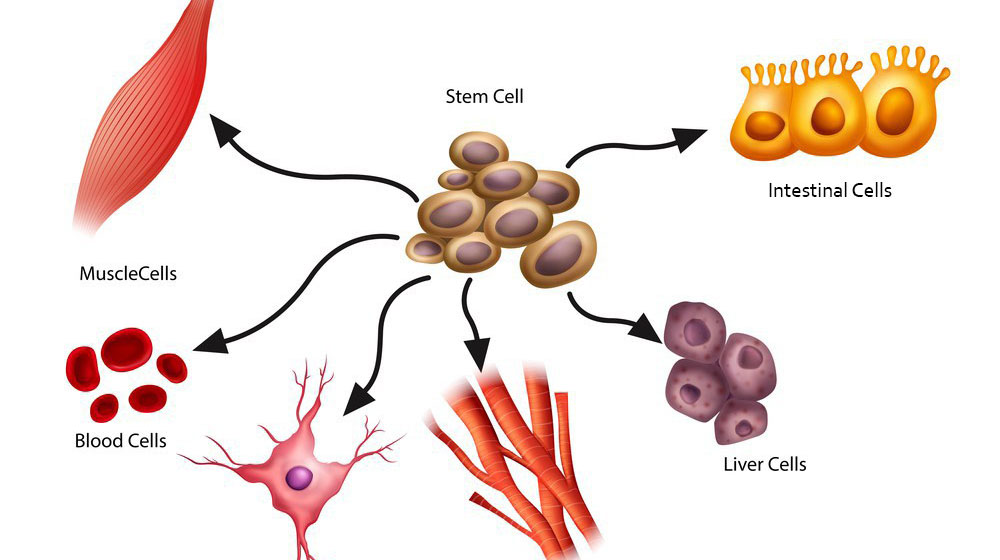
Stem Cells are Biological cells that can separate into different sorts of cells and can divide to deliver same kind of cells in huge numbers. They are found in multicellular life forms.In mammals, there are two wide kinds of stem cells: embryonic stem cells, which are isolated from the internal cell mass of blastocysts, and adult stem cells, which are found in different tissues.
Track 5: Bio-markers of Cancer Stem Cells
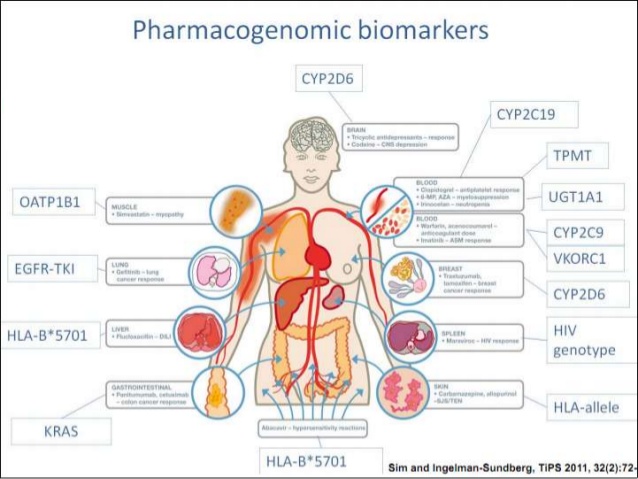
Liver cancer is the fifth most normally analysed harm and the second most incessant reason for cancer death in men around the world. Amongst liver cancers, hepatocellular carcinoma (HCC) represents the major histological subtype and it is one of the most common malignant human tumours worldwide. Research into the molecular biology of hepato-carcinogenesis has identified several biomarkers, which could provide additional information in order to better understand the biology of HCC. A large number of biomarkers have been shown to have potential predictive significance and a wide variety of molecular markers have been proven to be excellent diagnostic tools for HCC however it is hard to portray HCC with a single biomarker. Therefore, marks of a mix of biomarkers might be more important for the finding, arranging and visualization of HCC. Specifically, a correlation of HCC-CSCs phenotype to specific hepatic cancer subtypes and to specific clinical and pathological features has not yet been reported in human liver tumours.
- RAPD
- Transciptomic Biomarkers
- Proteomic Biomarkers
- RFLP
Track 6: Cancer immunology & Immunotherapy
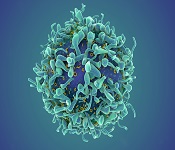
Immunology is a part of science that covers the study of immune systems in all living beings. Immunology outlines, measures, and contextualizes the physiological working of the immune system in conditions of both wellbeing and sicknesses; breakdowns of the immune system in immunological disorders, (for example, autoimmune diseases,, hypersensitivities immune deficiency, and rejection of transplants: the physical, compound and physiological attributes of the segments of the immune system in vitro, in situ, and in vivo. Immunology has applications in various orders of medication, especially in the fields of organ transplantation, oncology, rheumatology, virology, bacteriology, parasitology, psychiatry, and dermatology.
- Pluripotent Stem Cells
- Hematopoetic Stem Cell
- Stem Cell Niche
- Mesenchymal Stem Cell
- Molecular Signalling
Track 7: Cancer Treatments
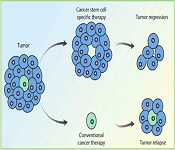
Cancer treatments against tumour, chemo-and radiotherapy, have various restrictions that prompt treatment disappointment and disease repeat. These cells are associated with tumour formation, support, metastasis and repeat. Consequently, with the end goal to create productive medicines that can prompt a dependable clinical reaction forestalling tumour backslide it is vital to create drugs that can particularly target and dispose of CSCs. On-going distinguishing proof of surface markers and comprehension of atomic element is related with CSC phenotype, assisted with the plan of viable medicines.
- Gene Treatment
- Epigenic Alternatives
- Radiation Treatments
Track 8: Types of Cancer
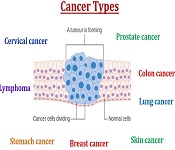
Cancer type include Carcinoma, Sarcoma, tumours got from epithelial cells. This gathering incorporates a large number of the most widely recognized malignancies and incorporate almost each one of those in the bosom, prostate, lung, pancreas and colon.
- Bladder Cancer
- Breast Cancer
- Colon and Rectal Cancer
- Endometrial Cancer
- Kidney Cancer
- Leukaemia
- Liver Lung Cancer
- Melanoma
- Non-Hodgkin Lymphoma
- Pancreatic Cancer
- Prostate Cancer
- Thyroid Cancer
Track 9: Nanotechnology in Cancer
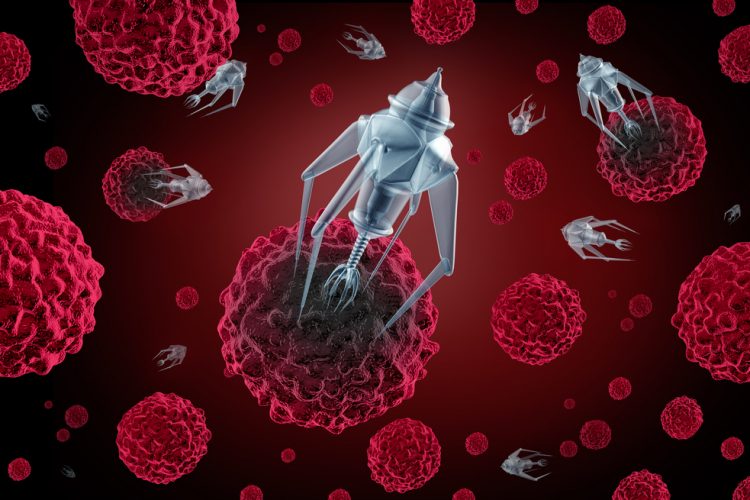
Cancer nanotechnology is a part of nanotechnology which deals with various techniques, equipment’s also known as nano-materials to the analysis and treatment of cancer. It is the branch of nanotechnology that uses nanoscience and nanovectors to cure or stop cancer cells and their growth
- Cancer Diagnosis
- Cancer Treatment
- Immunotherapy
- Nanotechnology in Cancer Cure
Track 10: Cancer Alternative Medicine
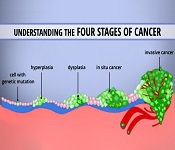
Organizing can be "clinical" or "neurotic." Clinical arranging depends on the after effects of tests done before medical procedure, for example, physical examinations and imaging filters. Neurotic organizing depends on what is found amid medical procedure. Clinical stage is regularly demonstrated with a lowercase "c" before the TNM grouping. The obsessive stage is demonstrated with a lowercase "p." by and large, neurotic arranging gives the most data to decide a patient's anticipation.
- TNM framework organizing
- Post Therapy
- Recurrence
- Autopsy
Track 11: Cancer Case Reports
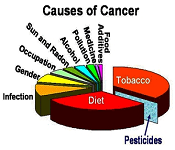
There can be more than one reason for cancer cells formation and growth. Various powers can cause quality changes, for example, smoking, radiation, infections, Cancer causing synthetic compounds (cancer-causing agents), heftiness, hormones, endless aggravation and an absence of activity.
- Hereditary Malignancies
- Radiation effect
- Lifestyle effects
Track 12: Cancer Treatment
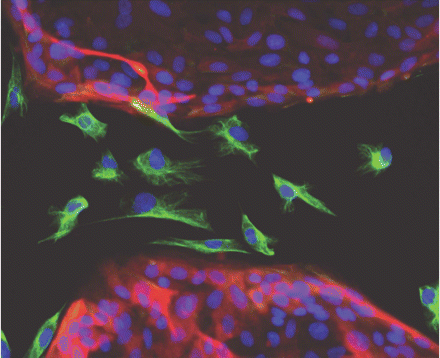
The causes for cancer can be many starting from genetic to the lifestyle of an individual. Cancer can spread from one region of the body to another and can also lead to death, however, there are some ways to treat or at least reduce it from spreading.
- Chemotherapy
- Immunotherapy
- Hormonal Treatment
- Use of Inhibitors
- Photodynamic Treatment
Track 13: Cancer prevention & Cure
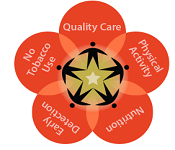
Cancer Prevention contains steps that are taken to bring down the danger of getting the Cancer disease. This can incorporate keeping up a solid way of life, to know disease causing substances, and taking prescriptions or immunizations that can keep cancer from formation.
- Proper and Healthy Diet
- Medication
- Change in Lifestyle
Track 14: Clinical Oncology
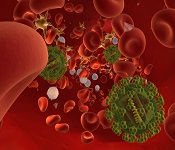
Clinical preliminaries are broadly perceived for real advances in Cancer treatment because of Developing new medications to avert or help oversee Graft-Versus-Host Disease (GvHD). Graft-Versus-Host Disease (GvHD), a typical and conceivably extreme reaction of stem cell transplants in which contributor safe cells assault solid patient cells and tissues. Creating cancer immunization systems for use alongside transplant to invigorate the Graft-Versus- leukaemia (GVL) impact and limit malady backslide. Graft-versus-Leukaemia (GVL) impact restorative impact in which transplanted invulnerable cells assault leftover leukaemia or other tumour cells
- Cellular therapy
- Tissue regeneration
- Drug discovery
- Stem Cell Transplantation
Track 15: Bioinformatics and Systems Biology
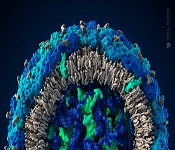
Bioinformatics and System Biology utilize PC techniques to investigate natural information. As opposed to the past spotlight on single qualities or proteins, frameworks science is a field of research which centres on understanding whole natural frameworks, for example, protein buildings, metabolic pathways, or quality administrative systems.
- Molecules and Cells
- Genes, Systems, and Evolution
- Statistics in Biology
- Applied Genomics
- Programming for Biologists
- Biological Databases and Data mining
- Bioinformatics and Evolutionary Genomics
Track 16: 3D Bio printing & Bio fabrication.
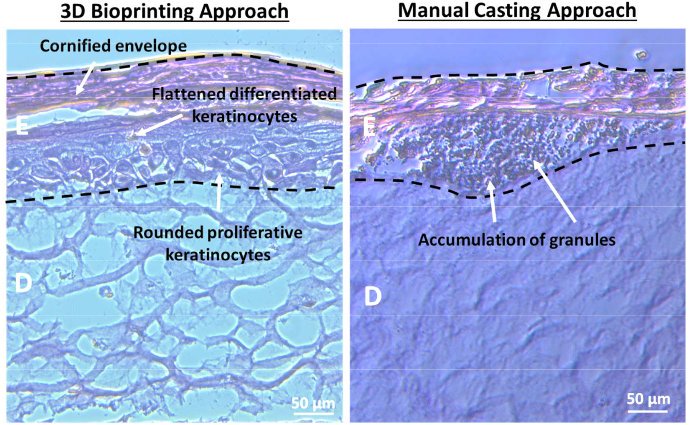
Bio fabrication is alluded to the generation of fake tissues or organs to address wellbeing challenges in medication. It frequently utilizes the rule of 3D Bio printing to shape cells, gels and strands into an organ
- Bioprinting using microfluidics
- Bioinks
- Engineered Tissue
- 3D printing technologies
- Innovative development in 3D-bioprinting
- Intelligent bio materials
Track 17: Cancer Genetics
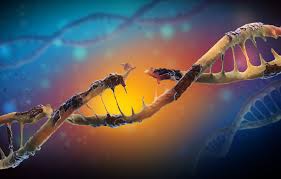
Gene Therapy is an exploratory strategy that utilizes qualities to treat or anticipate ailment. Later on, this strategy may enable specialists to treat confusion by embedding a quality into a patient's cells as opposed to utilizing medications or medical procedure. In spite of the fact that gene therapy is a promising treatment alternative for various ailments (counting acquired disarranges, a few sorts of malignancy, and certain viral contaminations), the system stays hazardous is still under examination to ensure that it will be protected and successful. Gene Therapy is as of now being tried just for maladies that have no different fixes
- Macular Degeneration
- Utero CRISPR
- Metabolic liver disease
- CRISPR–Cas9 genome-wide nuclease
- Streptococcus pyogenic
- Immunoglobulin therapy for Kawasaki disease
Track 18: Stem Cell Biology and advances
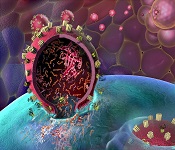
Structural microorganisms have the surprising potential to form into a wide range of cell types, basically unbounded to recharge different cells as long as the individual or creature is as yet alive, offering gigantic any expectation of relieving Alzheimer's infection, fixing harmed spinal lines, treating kidney, liver and lung maladies and making harmed hearts entirety. Up to this point, researchers essentially worked with two sorts of undifferentiated organisms from creatures and people: embryonic foundational microorganisms and non-embryonic "physical" or "grown-up" undeveloped cells. Late leap forward make it conceivable to change over or "reconstruct" specific grown-up cells to expect a stem cells with various innovations. The audit will quickly talk about the on-going advances here.
- Stem cells in endocrinology
- Liver stem cells and regeneration
- Early embryonic development
- Neural stem cells and regeneration
- Blood stem cells and regeneration
- Muscle (cardiac and skeletal) stem cells and regeneration
- Totipotency, pluripotency and multipotency
Track 19: Advanced in Tissue Regeneration
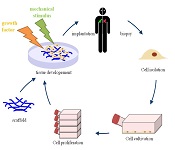
Tissue Engineering is a logical field and furthermore portrayed as understanding the benchmarks of tissue and its improvement by handy exchange of insufficient tissue for clinical use. Tissue building bargains about the investigation of mix of cells, structuring, materials methodologies, hemispherical and biochemical segments to supplant or upgrade characteristic tissues. Tissue Engineering includes the utilization of Scaffolds to shape practical tissues and organs, which can be embedded, again into the benefactor, have with the utilization of many building and materials techniques alongside some hemispherical elements. It is identified with in excess of one branch which applies building information and life science ideas towards the advancement of natural substitutes which can enhance or re-establish physiological qualities of organ.
- Tissue Engineering
- Regenerative Medicine
- Bio Materials
- Scaffolds
- Tissue Regeneration
Track 20: Medical Imaging
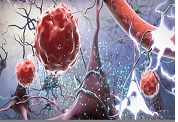
Moral and logical issues encompass both embryonic and fatal Cord Stem cells and frustrate their across the board usage. Interestingly, foundation microorganisms recuperated postnatal from the umbilical line, including the umbilical string platelets, amnion/placenta, umbilical rope vein, or umbilical string lattice cells, are a promptly accessible and modest wellspring of cells that are fit for framing a wide range of cell types (i.e., they are "multi-potent"). This survey will centre around the umbilical rope determined immature microorganisms and contrast those cells and grown-up bone marrow-inferred melancholy undifferentiated organisms.
- Corneal disease
- Umbilical cord blood transplant.
Track 21: Stem Cell And Tissue Homeostasis
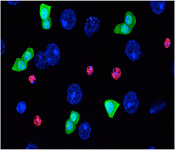
Tissue homeostasis depends on the precise direction of substantial foundational microorganism movement. Substantial undeveloped cells need to react to tissue harm and multiply as per tissue prerequisites, while staying away from over-multiplication. The administrative systems engaged with these reactions are presently being disentangled in the intestinal epithelium of Philosophical, giving new understanding into procedures and components of undeveloped cell direction in obstruction epithelial.
- SCs and their niches
- Hematopoietic SCs
- SCs and the origin of intestinal cancer
Track 22: Stem Cell Aging
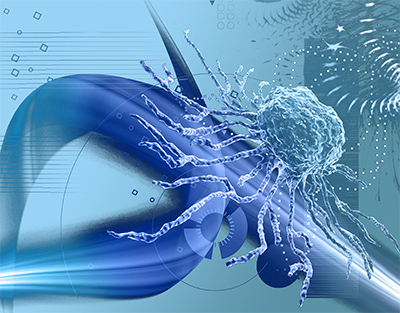
Maturing tissues encounter a dynamic decrease in homeostatic and regenerative limits, which has been credited to degenerative changes in tissue-particular foundation microorganisms, undifferentiated organism specialties and fundamental signals that manage undeveloped cell action. Understanding the sub-atomic pathways associated with this age-subordinate crumbling of immature microorganism capacity will be basic for growing new treatments for maladies of maturing that objective the particular reasons for age-related utilitarian decay. Here we investigate key sub-atomic pathways that are generally irritated as tissues and undifferentiated organisms age and savage.
- Theories of aging
- Theories of biological aging
- Proximate theories of biological aging
- Alzheimer‘s disease
- Cardiovascular diseases
Track 23: Stem Cell Therapy
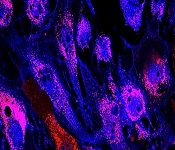
Essential microorganisms are the body's rough materials cells from which each other cell with particular limits are created. New mother cells or stem cells either ended up being new undifferentiated cells (self-restoration) or wind up stem cells (division) with a more specific limit, for instance, platelets, mind cells, heart muscle cells or bone cells. No other cell in the body has the trademark ability to make new cell types.
- Acute Lymphoblastic Leukaemia
- Acute Megakaryocytic Leukaemia
- Acute Myelomonocytic Leukaemia
- Lymphoma Cancer
- Immune Cell Therapy
- Allogeneic transplantation.
- Advances in Bone Marrow Stem Cell
Track 24: Recent advances in Stem Cell
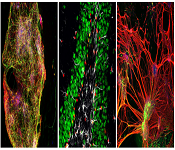
Immature microorganisms have the amazing potential to form into various cell types, basically unbounded to renew different cells as long as the individual or creature is as yet alive, offering monstrous any desire for relieving Alzheimer's ailment, fixing harmed spinal lines, treating kidney, liver and lung sicknesses and making harmed hearts entirety. Up to this point, researchers essentially worked with two sorts of undeveloped cells from creatures and people: embryonic undifferentiated cells and non-embryonic "substantial" or "grown-up" microorganisms. On-going achievement makes it conceivable to change over or "reinvent"specific grown-up cells to expect stem-like cells with various advancements. The survey will quickly talk about the on-going advances here.
- Embryonic stem cells
- Somatic cell nuclear transfer (SCNT)
- Induced pluripotent stem cell (iPSC)
- Stimulus-triggered acquisition of pluripotency (STAP)
- Adult Stem Cells
- Adult Neural Stem Cells
Track 25: Epidermal Stem Cells & Cancer Epidemology
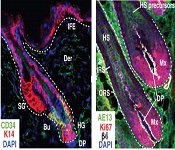
The skin continually re-establishes itself for the duration of grown-up life, and the hair follicle experiences an interminable cycle of development and degeneration. microorganisms (StemCell's) dwelling in the epidermis and hair follicle guarantee the support of grown-up skin homeostasis and hair recovery, however they likewise take part in the fix of the epidermis after wounds.
- Stem cells with in adult skin epithelium
- Signalling and stem cell fate specification in the skin
- Bone Morphogenetic Protein Signalling
- Notch Signalling
Track 26: Stem Cell Renewal
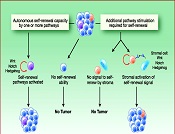
In numerous tissues, mammalian maturing is related with a decrease in the replicative and utilitarian limit of physical immature microorganisms and other self-recharging compartments. Understanding the premise of this decay is a noteworthy objective of maturing research. . Such methodologies incorporate endeavours to shield undifferentiated organisms from age-advancing harm, to 'revive' foundation microorganisms using pharmacologic specialists that moderate maturing incited modifications in flagging, and to supplant lost undeveloped cells through regenerative drug approaches. Some progress has been made in every one of these fields in the course of the most recent year and a half incorporating advances in the generation of contributor particular all-powerful undifferentiated organisms through prompted diplomat (iPS), gains in our comprehension of how tumour silencer flagging is controlled in self-restoring compartments to direct maturing, and further show of extracellular 'milieu' factors that bother undeveloped cell work with age.
- Regenerative medicine and iPS
- Somatic self-renewal and aging
- somatic stem and progenitor cell aging
Track 27: Ethics considerations in stem cell therapy
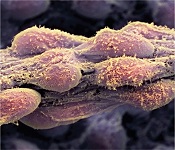
Stem Cell Research offers incredible guarantee for understanding fundamental components of human advancement and separation, and additionally the expectation for new medications for illnesses, for example, diabetes, spinal line damage, Parkinson's ailment, and myocardial localized necrosis. In any case, human Stem Cell (hSC) inquires about additionally raises sharp moral and political contentions. The reconstructing of substantial cells to deliver instigated pluripotent undifferentiated organisms keeps away from the moral issues particular to embryonic microorganism examine. In any hSC look into, be that as it may, troublesome problems emerge with respect to delicate downstream research, agree to give materials for hSC explore, early clinical preliminaries of hSC treatments, and oversight of hSC inquire about. These moral and strategy issues should be talked about alongside logical difficulties to guarantee that undeveloped cell examine is done in a morally suitable way. This article gives a basic investigation of these issues and how they are tended to in current approaches.
- Multi-potent Stem Cells
- Embryonic Stem Cell Research
- Somatic Cell Nuclear Transfer (SCNT)
- Induced Pluripotent Stem Cells (iPS Cells)
- Stem Cell Clinical Trials
Track 28: Advance in developmental biology and stem cells
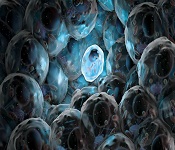
Developmental biology (counting embryology) is proposed as "the stem cell of biological disciplines." Genetics, cell science, oncology, immunology, transformative components, neurobiology, and frameworks science every has its heritage in formative science. In addition, formative science keeps on moving on, maturing off more teaches, while holding its very own character. While its relative controls separate into sciences with a limited arrangement of standards, precedents, and systems, formative science stays incredible, pluripotent, and generally undifferentiated. In numerous orders, particularly in transformative science and oncology the developmental point of view is being reasserted as a critical research program.
- The emergence of cellular heterogeneity within the PSU
- The PSU and tissue compartmentalisation
- Tissue compartmentalisation
- Oncogenic perturbation of stem cell behaviour
- Compartmentalisation and heterogeneity beyond the epidermis
Track 29: Pediatric Surgery & Oncology
Pediatric surgery is a super speciality to fame of surgery including the surgery of foetuses, babies, adolescents, children, and young adults. Pediatric surgery rose in the middle of the twentieth century and the surgical care of infants and children has been improved. In pediatric surgery unique sorts of novel strategies and techniques are most regularly used at children hospital. Sub specialties of pediatric surgery itself include: neonatal surgery and foetal surgery.
MARKET ANALYSIS
Market Analysis
Euroscicon Ltd invites all the participants through the globe to join at EuroSciCon Conference on Cancer Stem Cell & Oncology Research which is going to be held during August 05-06,2020, Singapore. which will include keynote presentations, Oral talks, Poster presentations, and Exhibitions. Cancer Stem Cell 2020 is a specially designed cluster conference. The main theme of the conference is “Advanced Research and Developments in Oncology & Cancer Stem Cells” which covers a wide range of critically important sessions.
For More details please visit: https://cancerstemcell.euroscicon.com/
Importance & Scope
Cancer is the second leading cause of death worldwide. It’s crucial to remember that cancer is not one disease it’s more than 200 cancer diseases involved. All different, unique diseases, which require different approaches for treatment. Treatments that work for some cancers don’t work for others and sometimes those treatments simply stop working. And only a global search for answers will help us get to grips with this disease. The conference will provide with an exceptional opportunity for the delegates from Universities and Institutes to interact with the world class Scientists and Industry Professionals working in the field of cancer/oncology. The conference will provide with an exceptional opportunity for the delegates from Universities and Institutes to interact with the world class Scientists and Industry Professionals working in the field of cancer/oncology.
Cancer stem cell 2020 will also explore the new ideas and concepts on global scale and the topics Cancer Science & Therapy, Cancer Cell Biology, Organ-Defined Cancers, Tumour Science, Cancer Genetics, Clinical Cancer Research, Cancer & Tumour Immunology, Cancer : Genomics & Metabolomics, Targeted Cancer Therapy, Stem Cell Therapy, Cancer Biomarkers, Tumor Virology, Cancer Nanotechnology, Cancer Treatment & Therapeutics, Cancer Clinical Trials, Cancer Case Reports, Cancer Drug Diagnostics & Therapeutics, Frontiers in Cancer Science, Precision Medicine & Cancer Therapy, Cancer Management & Prevention, Economic Impact of Cancer Therapy.
Why Seoul?
Seoul, officially the Seoul Special Metropolitan City, is the capital and largest metropolis of South Korea. Seoul is the hub of Cancer Institutes and center for Cancer Research. In recent years, the number of international students for Cancer Research at Seoul's universities has risen rapidly.
Market Analysis Report:
Cancer is a disease characterized by the abandoned growth and spread of abnormal cells. If the growth of abnormal cells is not controlled, it can result in death. In Worldwide, one in seven deaths is due to cancer. cancercauses more deaths than AIDS, tuberculosis, and malaria. According to income when countries are grouped, cancer is the second leading cause of death in high-income countries (following cardiovascular diseases) and the third leading cause of death in low- and middle-income countries (following cardiovascular diseases and infectious and parasitic diseases).
Cancer Diagnostics Market:
The global market size of cancer diagnostics is expected to reach $22.7 billion from $7.1 billion in 2015. Growing prevalence of oncologic cases, constant technological innovations in diagnostics, and increasing requirement for effective screening tests are some of the main factors prompting the demand for screening tools across the world.
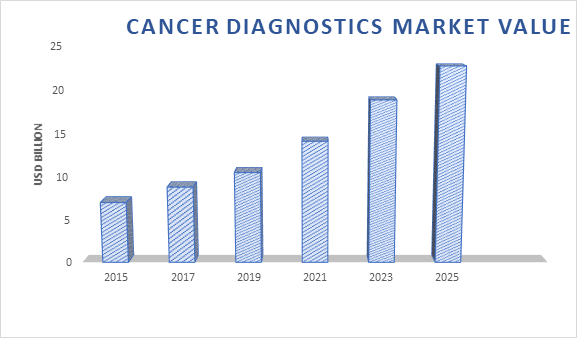
Rising awareness and supportive government enterprises are some other factors that are anticipated to increase the growth of the sector during the forecast period. The global cancer diagnostics market is fragmented based on technology, application, and region. Increase in aging population and cancer cases are likely to create a huge opportunity for cancer diagnostics.
Cancer Diagnostic Market, By Technology
Based on technology, the cancer diagnostics market is divided into instrument-based and platform-based. In 2015, the instrument-based segment is predicted to account for a major share of the cancer diagnostics market, by product.
1) Platform Based:
- In situ Hybridization
- Flow Cytometry
- Next-generation Sequencing
- Microarrays
- Others
2) Instrument Based:
- Biopsy
- Mammography
- PET
- Ultrasound
- MRI
- CT
Cancer Diagnostic Market, By Region
Based on region, the cancer diagnostics market is classified into North America, Europe, Asia, and Rest of the World. Rest of the World includes Latin America, Pacific countries, and Middle East and Africa. North America is predicted as the largest share in the cancer diagnostics market, followed by Europe and Asia.
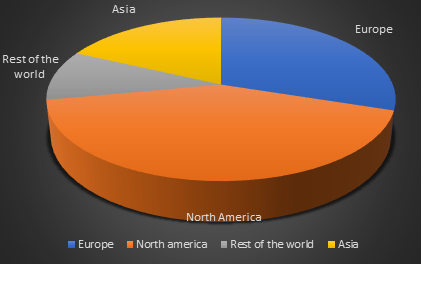
Some of the major performers in the global cancer diagnostics system market are:
- Sanofi (France)
- Novartis (Germany)
- Pfizer Inc. (U.S.)
- Eli Lilly & Company (U.S.)
- ImClone Systems Inc. (U.S.)
- GlaxoSmithKline (U.K)
- AstraZeneca (U.K)
- Schering-Plough (U.S.)
- Boehringer Ingelheim (Germany)
- Bristol-Myers Squibb
- Teva Pharmaceuticals Industries (Japan)
- F. Hoffmann-La Roche Ltd (Switzerland)
- Merck & Co., Inc. (U.S.)
- Chemo Espana SL (Spain)
- CELGENE CORPORATION (U.S.)
- Amgen Inc (U.S.)
- Bayer AG (Germany)
- Takeda Pharmaceutical Company Limited (Japan)
Major Associations Worldwide
- American Association for Cancer Research
- Virginia Cancer Institute
- American Brain Tumor Association
- American Society of Paediatric Haematology/Oncology
- Association of Cancer Physicians
- American Childhood Cancer Organization
- American Society of Clinical Oncology
- Australasian Lung Cancer Trials Group
- International Cancer Research Partnership (ICRP)
- American Association for Cancer Research (AACR)
- American Society of Clinical Oncology (ASCO)
- International Agency for Research on Cancer (IARC)
- Cancer Society of New Zealand
- Irish Cancer Society
- Australian Cervical Cancer Foundation
- Medical Centre Cologne
- Cancer Research UK
- Australian Prostate Cancer Research
- Peter McCollum Cancer Centre
- The European Cancer Organization (ECCO)
- German Cancer Research Centre
Major Medical Universities
Worldwide
- Harvard University
- University of Minnesota
- Mayo Medical School
- Pittsburgh School of Medicine
- Yale University
- University of Cambridge
- University of Oxford Stanford University
- Yale University
- Emory University
- John Hopkins University
- Kings College London
- Feinberg School of Medicine
- University of Wisconsin
- UNC School of Medicine
- Karolinska University
Cancer related companies:
Roche | Sanofi | Johnson & Johnson | Merck & Co. (MSD) | Novartis | AbbVie | Gilead Sciences| GlaxoSmithKline (GSK) | Amgen | Pfizer | F. Hoffmann-La Roche Ltd | Celgene Corp |Novartis AG | Bristol-Myers Squibb Co | Samsung Medical Cente
LEARN MORE
Major Cancer Stem cell and Oncology research Associations in Singapore:
Ajou University | Catholic Kwandong University | Catholic University of Daegu | Catholic University of Korea | CHA University | Cheju National University | Chonbuk National University | Chonnam National University | Chosun University | Chung-Ang University | Chungbuk National University | Chungnam National University | Dankook University | Dong-A University, | Dongguk University, | Eulji University, | Ewha Womans University | Gachon University of Medicine and Science | Gyeongsang National University | Hallym University | Hanyang University | Inha University | Inje University | Kangwon National University | Keimyung University | Konkuk University | Konyang University | Korea University | Kosin University | Kyung Hee University | Kyungpook National University | Pusan National University | Seonam University | Seoul National University | Soonchunhyang University | Sungkyunkwan University | University of Ulsan | Wonkwang University | Yeungnam University | Yonsei University | Seoul National University | Korea University
Top Universities for Cancer Stem Cell & Oncology Singapore:
Yale University | Emory University | Karolina University | John Hopkins University | University Of Wisconsin | Kings College London| Harvard University | University of Oxford | University of Cambridge | Stanford University | Cambridge University
Top Universities for Cancer Stem Cell & Oncology in Asia:
The University of Tokyo | National University of Singapore (NUS) | Kyoto University | Yonsei University | Shanghai Jiao Tong University | Nanyang Technological University (NTU) | Chulalongkorn University | Tohoku University | Tokyo Medical and Dental University | Kyushu University | Nagoya University | University of Science and Technology of China| University of Hong Kong (HKU) | Peking University | Seoul National University (SNU) | National Taiwan University (NTU) | Osaka University | Tsinghua University | The Chinese University of Hong Kong (CUHK) | Fudan University | The Hong Kong University of Science and Technology (HKUST) | Taipei Medical University | Mahidol University | KAIST - Korea Advanced Institute of Science and Technology
Journals for Cancer Stem Cell & Oncology:
Cancer Surgery Journal | Carcinogenesis & Mutagenesis Journal | Cervical Cancer Journal | Chemotherapy Journal | Colorectal Cancer Journal | Gastrointestinal Cancer Journal | Integrative Oncology Journal | Leukaemia Journal| Journal of Neoplasm | Journal of Carcinogenesis & Mutagenesis, Epidemiology: Open Access | Journal of Vaccines & Vaccination | Journal of Cell Biology | Journal of Stem Cell Reports | Journal of Cell Death and Differentiation, Aging Cells, Molecular Biology of the Cell | Cancer Diagnosis Journal

